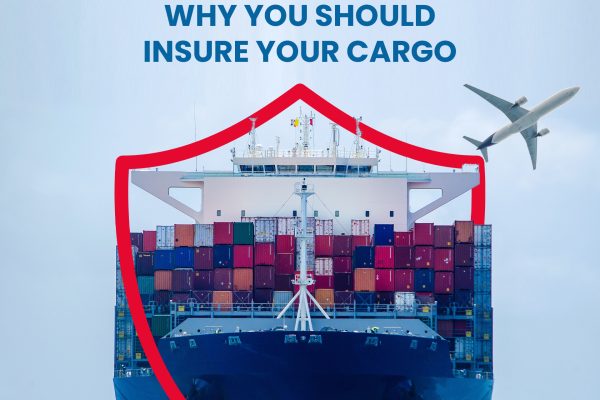It is common to hear importers and exporters say it is not worth the money to insure their cargo, believing that the risks of loss, damage or theft are minimal. While it is true that the majority of shipments arrive at destination intact, the ones that do suffer mishaps can incur hidden costs you may not be aware of.
Notable Shipping Disasters
There have been some prominent shipping accidents over the past couple of years, including onboard fires, piracy and missile attacks. This year the containership Dali crashed into the Baltimore Bridge; last year the cargo on the Fremantle Highway caught fire off the coast of the Netherlands; who can forget the Ever Given running aground and blocking off the Suez Canal in 2021?
Airfreight Also Carries Risk
Airfreight does not provide immunity from loss and damage either and, while most airlines offer some protection, known as carrier liability, the coverage is typically scant. It is common for them to have many exclusions such as floods, earthquakes, and natural disasters, and they generally don’t provide compensation for high-value and fragile goods.
Loss, Fires and Storms at Sea
Consignments carried by sea are generally better protected when packed in containers rather than loose, however, according to annual reports from the World Shipping Council (WSC) over a 15-year period, on average 1,566 containers were lost at sea each year, usually in stormy conditions.
Fires on ships have become more frequent with the increase in the carriage of dangerous goods, including lithium batteries and sometimes chemicals that make firefighting more challenging. Many vessels have inadequate firefighting systems on board.
According to the 2023 Allianz Safety and Shipping Review, there have been 64 reported fires on containerships in the past five years. Last year fire-related incidents at sea surged by over 17% compared to the previous year.
General Average Declarations
Even if your own cargo is not directly affected during an accident, damage to a ship can give rise to the declaration of a ‘General Average’ by the shipowner, requiring holders of Bills of Lading to share responsibility for costs incurred. When this happens, uninsured consignment holders sometimes need to post bonds before they can obtain release of their goods.
Even at today’s increased premiums, marine insurance still makes good sense. For that reason we always recommend that importers and exporters are take out adequate cover on their freight.
As Customs Brokers and International Freight Forwarders, we offer you correct advice on your shipments and can assist in arranging insurance, whether by air or sea.
For information, contact Andrew, email enq@collessyoung.com.au Tel: +61 7 3890 0800.

